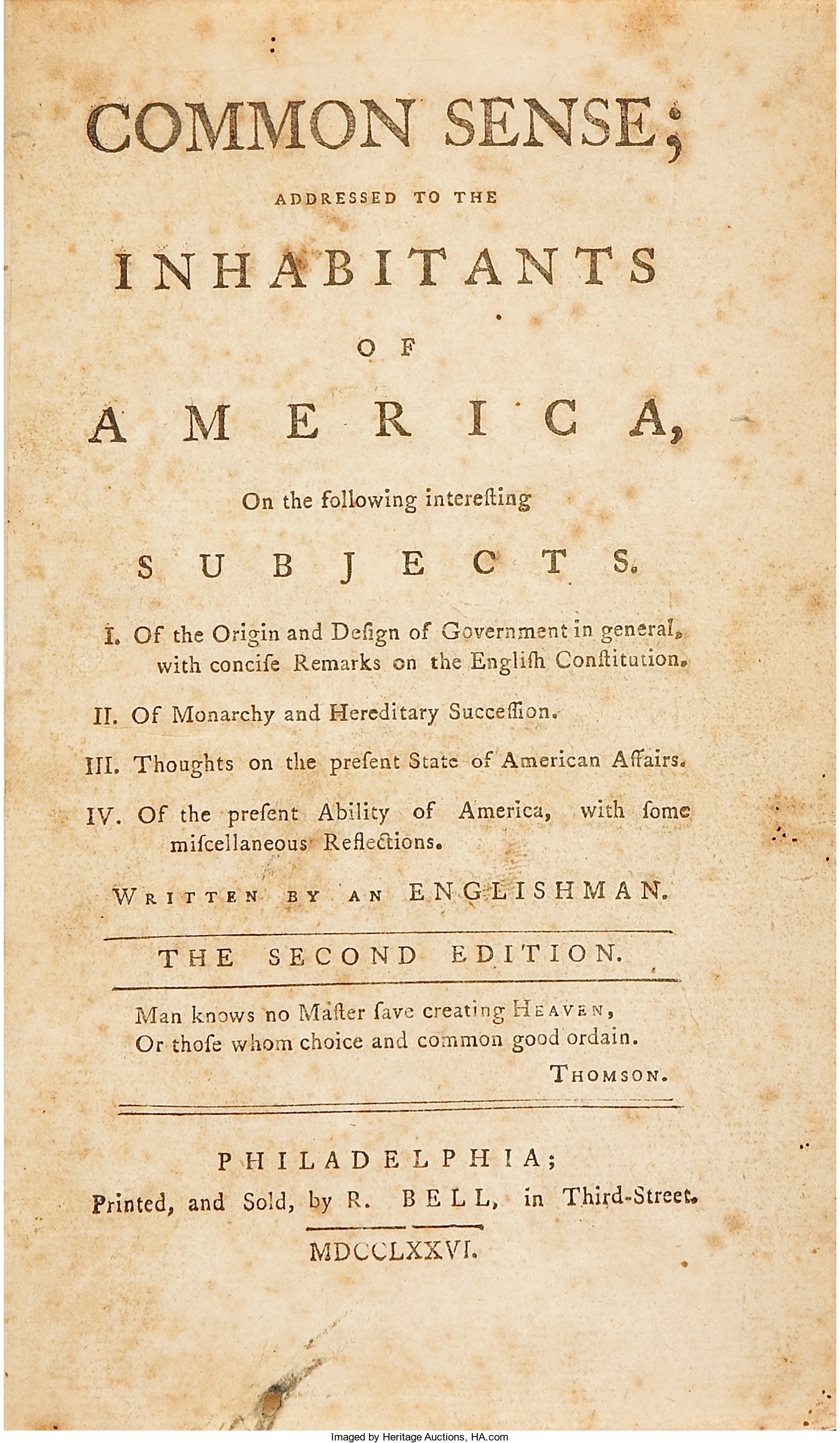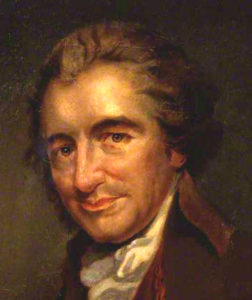
By Jim O’Neal
When the Founding Fathers signed the Declaration of Independence in July 1776, it was thought that most colonists were true patriots who favored full separation from England. It was not true then – 15 percent to 20 percent were still loyal to the Crown (Loyalists) and a like number were still undecided – and it was absolutely unresolved as little as six months earlier.
It was true that there had been skirmishes with British soldiers and a series of complaints diplomatically lodged by colonial leaders, however, the Continental Congress had been silent on the issue of indignation. There was still a sense that Parliament in London could resolve disputes. If anything, the colonies vibrated with unarticulated emotions – poised for someone to bring the scattered opinions into focus.
Clarity finally arrived in Philadelphia on Jan. 10, 1776, when an English corset-maker, who had only been in America a little over a year, published a pamphlet titled “Common Sense.” It was originally titled “Plain Truth” (Benjamin Rush suggested the change) and signed anonymously “By an Englishman.” In stunningly clear and moving prose, Thomas Paine gathered up the random, unspoken thoughts of the average smithy or farmer and crystallized the rebellious demand for independence, giving them the courage to accept a radical idea.

He wrote, “The sun never shined on a cause of greater worth. … ’Tis not the concern of a day, a year, or an age; posterity are virtually involved in the contest … Now is the seed time of continental union, faith and honor.” History would be made now or never. Paine wrote. “The present winter is worth an age if rightly employed, but if lost or neglected, the whole continent will partake of the misfortune.”
Then came the words from which there would be no turning back: “Every thing that is right or reasonable pleads for separation. The blood of the slain, the weeping voice of nature cries, ’TIS TIME TO PART!”
“Common Sense” was an immediate success; 100,000 copies circulated in three months to the 2.5 million white residents in the 13 colonies. For the first time, the notion of independence was on the lips of every yeoman in the colonies and a new idea of separate nationality was in their heads.
Paine was the first man to string together the five words we now cherish: the United States of America.
Unadorned and plain, the American voice of simple declarative sentences, set off by vivid imagery, is the pioneering literary achievement of “Common Sense.” John Adams neatly summed up its importance when he said, “Without the pen of the author of ‘Common Sense,’ the sword of George Washington would have been raised in vain.”
Sounds right to me.
 Intelligent Collector blogger JIM O’NEAL is an avid collector and history buff. He is president and CEO of Frito-Lay International [retired] and earlier served as chair and CEO of PepsiCo Restaurants International [KFC Pizza Hut and Taco Bell].
Intelligent Collector blogger JIM O’NEAL is an avid collector and history buff. He is president and CEO of Frito-Lay International [retired] and earlier served as chair and CEO of PepsiCo Restaurants International [KFC Pizza Hut and Taco Bell].
